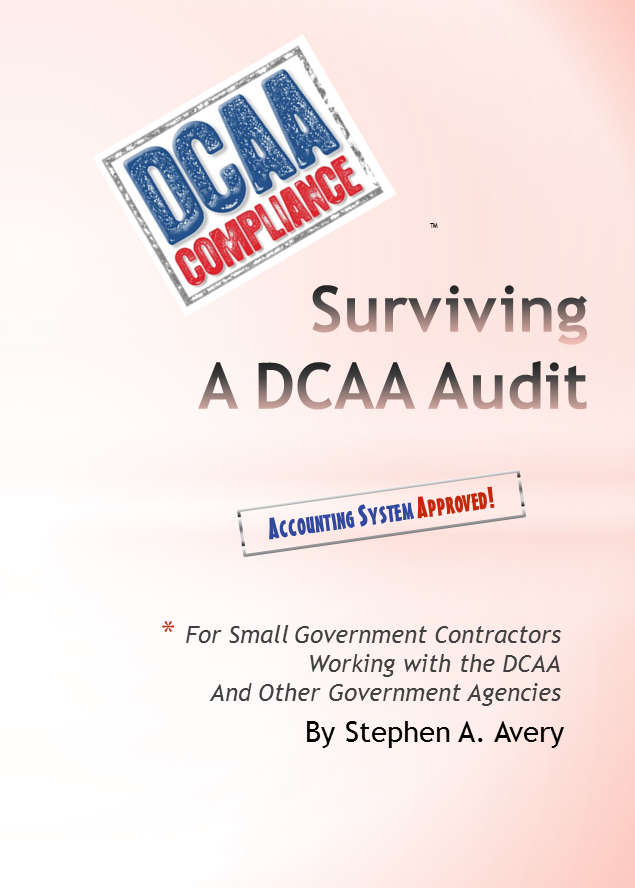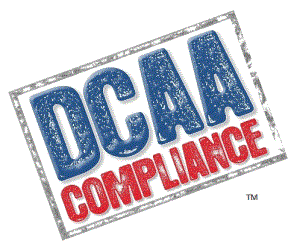In the current crisis surrounding DCAA, it is possible to receive a cost type contract requiring an approved accounting system without actually having anyone from the government look at your accounting system.
This may sound like a gift from heaven but it is not. All it does is transfer the risk off the government’s back and onto yours. Under this increasingly common scenario the contractor assumes the following risks:
| The government can come in at any time and evaluate your accounting system with disastrous results to include: suspension of full payments and even contract termination (the latter is extremely rare). |
The government can suddenly withhold all or part of your payments until they now decide your accounting system is adequate. They may even expect you to continue working while the mess is sorted out.
This withhold is now actually part of the Department of Defense regulations and the subject of a recent DOD OIG audit. This audit criticized DCMA for not withholding 5% of total payments after an accounting system was found inadequate.[1]
This is not the 15% of your fee or profit you may have heard about. This is up to 5% of your total billing. Remember, profits on cost type contracts usually average 5% to 7% of costs billed. If the government refuses to pay 5% of your total billing they just eliminated the vast majority of your profits.[2]
Oh, and it can get worse. Applied Physical Sciences, a small contractor, went to the Armed Services Board of Contract Appeals (ASBCA) claiming the government failed to reimburse over a million dollars. The government simply refused to pay them based on an inadequate accounting system, arguing that the inadequacy made it impossible to determine if any of the costs claimed were actually associated with government work. Applied Physical Sciences actually raised the inadequate accounting system as a defense, asserting the government should not have awarded them a cost contract. Alas (or not), the government won.[3]
| The lesson is ‘crystal clear’. The government awarded the contract in complete disregard of the government’s own standards and the contractor paid for it. |
The lesson is ‘crystal clear’. The government awarded the contract in complete disregard of the government’s own standards and the contractor paid for it. The contractor paid for it not because of the government’s failure to approve the accounting system, but because there was no adequate accounting system to support the contractor’s claimed costs.
They can also hold up any future contracts awaiting the now necessary approval.
| Even as the government has lost in way in how to enforce compliance, contractors need to understand the importance of excellent accounting systems to the government. |
Time and time again I am surprised by contractors who believe that accounting for government dollars on their part is unnecessary and a waste of time. A few years ago, I declined to work with a government contractor who bragged about getting DCAA to approve his accounting system without a general ledger system and his refusal to comply with the standards (or as he put it: “ridiculous demands”).
He wished to engage me to prepare and submit the billing on a cost type contract based on what he told me to bill. When I declined the ‘opportunity’, he accused me of being scared. When I told a friend about his comments; she teased me, stating that I was ex 82nd Airborne and not scared of anything. “No,” I replied, “I am scared, not of the government, but him”.
Your accounting system is important because the government says so, even if they come back after three years to punish you.
Each year the government spends billions of dollars with contractors providing vital services for our country. All of this money, to include classified work, is ultimately accountable to taxpayers (we all remember the stories about $400 hammers purchased by the Defense Department). The good contractors reading this book have no desire to make the front page of the papers (or worse the bench in front of a federal judge) because of their lack of accountability.
Almost immediately after publishing the new regulations[4] about contractor business systems, DCMA hit Lockheed Martin with a reduction of 5% in payments for the F-35 fighter. Last time I checked the total withholding was over 47 million dollars. If five percent does not seem like a lot, it represents almost all of the profit Lockheed planned on the F-35. Until they get their business systems approved they are working for free.
It is not only the Defense Department that is tightening down on contractor accountability, look at a recent Department of Energy regulation:
Contractor business systems and its internal controls are the first line of defense against waste, fraud, and abuse. Weak control systems increase the risk of unallowable and unreasonable cost on Government contracts. When a contract includes these business systems clauses, it will require the contractor to meet business system criteria for its estimating system, accounting system, earned value management system, purchasing management system, and property management system. When the contractor has acceptable business systems that comply with the terms and conditions of the contract, this will improve contract performance. Under certain conditions, if the business system has significant deficiencies, the contracting officer will be able to withhold a percentage of payments until the significant deficiencies are corrected.
Taxpayers demand accountability and the government will demand accountability from you, not stories, not promises.
[1] Evaluation of Defense Contract Management Agency Actions on Reported DoD Contractor Business System Deficiencies (Project No. D2013-DAPOCF-0201.002) DODIG-2016-001
[2] Lockheed Martin just finished three years of fee withholding for a noncompliant estimating system.
[3] Armed Services Board of Contract Appeals (ASBCA) 56581 and 58038
[4] We will discuss the regulations later in the chapter.
Excerpt from Surviving a DCAA Audit, available on Amazon

